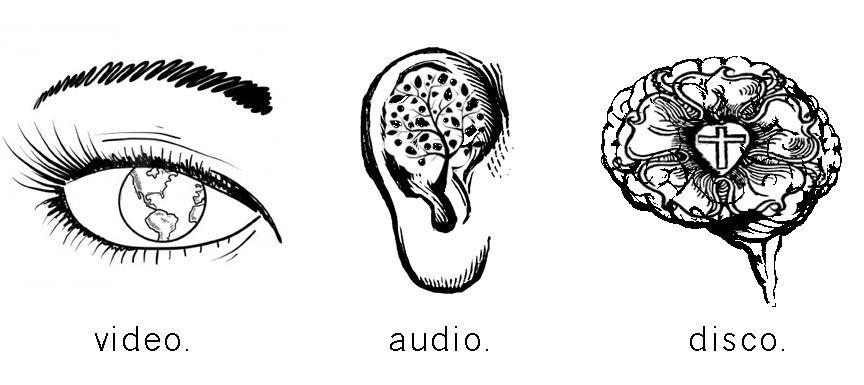
This is a small excerpt from a book of Thomas Merton's writings. It is a great follow up to some thoughts on the 'Gentle Pantheism' post.
His Paradise and Our Own:
"All nature is meant to make us think of paradise. Woods, fields, valleys, hills, the river and the sea, the clouds travelling across the sky, light and darkness, sun and stars, remind us that the world was first created as a paradise from Adam, and that in spite of his sin and ours, it will once again become a paradise when we are all risen from death in the second Adam.
Heaven is even now mirrored in created things. All God's creatures invite us to forget our vain cares and enter into our own hearts, which God Himself has made to be His paradise and our own. If we have God dwelling within us, making our souls His paradise, then the world around us can also become for us what it was meant to be for Adam - his paradise.
But if we seek paradise outside of ourselves, we cannot have paradise in our hearts. If we have no peace within ourselves, we have no pease with what is all around us. Only the man who is free from attachment finds that creatures have become his friends. When he is pure, they speak to him of God."

In response to your blog, "gentle pantheism" - perhaps our divine purpose is to contemplate God within, through and around our hearts and the world we live in. To ponder, to experience, to contemplate, to look outward and inward simultaneously, to create action which reflects the innermost stirrings of our heart and our contemplation - perhaps Thought and Extension is movement towards our divine purpose. Perhaps accepting that we will never reach full and total enlightenment, accepting and loving the search - perhaps that is our destiny; our fulfillment and our ultimate purpose.
ReplyDeleteIn response to A Merton Thought: I agree; mostly. The word "Attachment" offers me some struggle - is the opposite of attach not detach? To detach implies a letting go that is unconcerned with the world around. I believe that the mental and soulful place Merton points us towards with his words is beautiful but I could argue over his word choice forever. I would prefer he focused on interconnection rather than freedom from attachment, but - in all honesty - I am attached to words and thoughts in the same way that some persons are attached to iPods and apple advertising campaigns. Perhaps if I truly heard and felt Merton's words I would let go of attaching myself to the meanings of words and let go into his world of quite simple, yet challenging, purity and divinity.
But, alas, here we are in a society and in a people that bases nearly all of our communication in the written and spoken word. And, if one believes that God created this world, then one might also conclude that God created both the human desire for communication and the ability to communicate. And, from this angle, I do truly believe in the necessity of communication and in the importance of words. So much of our history is based in words - written, recorded, verbally passed from generation to generation. Through communication we find love, peace, war, hate, religion, culture and so much more.
So with that - one last thought, which points towards the sexist vocablary of Merton. I have read Merton and enjoyed - even savored - several of his passages, thoughts, and writings. I am not jumping on a high-horse and disregarding his writings and declaring him an intentional sexist author. However; there is a clear and definite focus on male language from Merton, which is very much a reflection of his own sex and the era he lived and wrote in. Yet, in a world where women are continually victims of violence and where Christian religion offers strength to certain communities and persons troubled by oppression, war and persecution we must make it a point to reclaim the voice of women in our history and in our religions. Referring to God solely as "He" detracts from women's position of equality in our world and also detracts from the infinite idea of God as in and of all things - beyond all words and definition - more than "He," more than "She," more than "Lord" and more than "Jesus" (for Christians). Additionaly, utilizing Adam - and affirming his maleness - as the source of original paradise detracts from the true story that is written in Genesis - that of an androgynous human creature in need of companionship who becomes both woman and man at the exact same moment in time. Our world, our history and our religion is written, remembered and perpetuated within a patriarchal society. Women's voices need to be remembered and authors, such as Merton, need to be a light of inspiration that reflect God's love and reflection of all humans - both male and female. Depending on the level of education, exposure and culture that persons grow up in - inclusive language and reclamation of women's stories and place in history and religion is an absolute necessity. Women who struggle to find their place in our world - side by side with all others and free from violence and oppression - need to read, to hear and to know that they too are the image of God and that they, too, have been strong pillars of faith, strength, change and goodness throughout our history.
whoever posted the above comment must not be into "KUNG FU" starring david caradine.
ReplyDeleteKristin I applaud your commitment to gender inclusive language. However, I think you're a bit tough on Merton who after all was only using the linguistic rubric of his day and canot be charegd with being sexist or patriarchal for that reason alone.
ReplyDelete